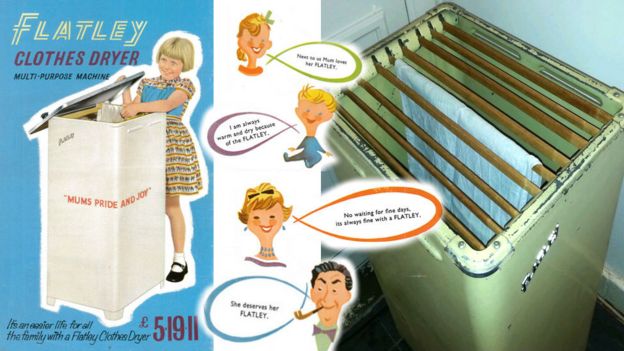There is something deeply
satisfying hearing the sound of the robot Roomba electric hoover busily bumping
its gentle way around the bathroom and bedrooms upstairs as I sit down drinking
a cup of tea and typing. Though not at
the same time obviously.
There is a remnant of the
Protestant Work Ethic in my guilty sipping that thinks that this division of
labour is somehow morally corrupting.
I
know from past experience of that electronic worm screen saver that used to eat
its way through the active screen on older generation computers that had been
left idle, I knew that a random thingy that goes off in different directions
when it hits the edge of the illuminated workspace will actually clear the
screen in a far quicker time that you would have expected. It therefore follows that a robot hoover that
does (virtually) the same thing, well, it moves in the same sort of way, will
clean a given area just as efficiently.
And this hoover actually has some sort of sensor that ‘notices’ dirt
that it is travelling over and does a little circular dance to remove it. So, this is an efficient and painless way to
do a daily cleaning.
It’s that ‘painless’ bit that
causes concern. If it is truly “painless”
– and I can hardly make a thing of having to press a single button and empty
the dust trap when it is done – then where is the merit in doing it, apart from
the cleanliness, of course? The saving
grace of this house is that we live on three floors, with the rooms starting on
the first floor, with the ground floor being a space beneath the house to park
the car, house the barbecue and also to breed mosquitos.
Roomba cleans floors, particularly the tiled
floors that we have, but what it doesn’t do is stairs. Or should that have been ‘are’ rather than ‘is’? Anyway, stairs have to be done in the old-fashioned
way with a human holding the hoover.
A three-floor house is not the
place to encourage the use of a corded vacuum cleaner and so we have a battery
operated one. This one is actually a
Hoover hoover and is light and easily manoeuvrable and therefore encourages
use, and a single charge is well able to cope with the quick glancing clean
that I give stairs with it. And it does
take physical effort and that allows me to regard the flat floor automatic cleaning
as a sort of compensation and therefore something which is acceptable.
That vague guilt feeling is what
I always refer to as The TCP Effect. TCP
was the go-to liquid in my childhood that was dabbed on any cuts and grazes to
make them better and to protect them from germs. The important thing about TCP was that it
stung – and therefore you knew that it was doing you good. It also had a strong smell, that I rather
liked – but that might well have been by association of a boyhood wound being
treated by a concerned mother, so that the aroma became inextricably linked to
maternal love. Or indeed with paternal
love, but fathers usually applied TCP in a less gentle way than mothers! Anyway, the sting of TCP was a sign of
progress, something was happening, the germs were being fought and the sting
was the tangible feel of the battle. It
is a version of the “No gain without pain” philosophy, there is always a cost
to be paid.
It's strange, but I don’t feel
the same way about the washing machine.
I can remember my grandmother and indeed my mother using a washboard to
clean some clothes! We later had a cylindrical
gas fired washing machine in which clothes looked as though they were being
stewed, and I can remember a pair of jointed wooden tongs that were used to get
them out. We had a mangle that I was
sometimes encouraged to use. I was
always fascinated to put towels through those rollers and see the squeezed cardboard-like
material come out of the other end!
Eventually
we owned a Flatley clothes dryer. Our
first twin tub was greeted with joy, but there was still a deal of work
involved washing clothes. It was only
when we moved house and we had a new (one of the first)
Hoover Keymatic machines
that the word ‘automatic’ could be applied to a washing machine. [I have
just gone through the paragraph above and removed all the references to the
machines being “mother’s” washing machines.
My parents had comparable jobs and, to be fair, the housework was
shared, as it had to be with both parents working and a young son coming home
from school for his lunch. I think, at
least in my memory, my mother did the lion’s share of the housework, but I can
also remember my dad taking his part too!
So, no sexism in the possessives! #menworktoo]
The dishwasher is more debateable. Ecologically, I am not sure that the one that
I own can be justified, especially with the A+++ machines they produce nowadays
that wash on a thimbleful of water or something equally remarkable. It might be lies, but they are comforting lies
that I will fully believe when it comes to the time that I need to replace my
present machine.
There are some (sad) people of
course, who say that hoovering is satisfying and relaxing, but that conjures up
memories of the worst excesses of Zen and the Art of Motorcycle Maintenance in
my mind, and we all know where books like that didn’t lead!
Having written about this thorny
ethical problem and come to few conclusions, I feel strangely happier: writing
as moral analgesic.
Works for me!






No comments:
Post a Comment